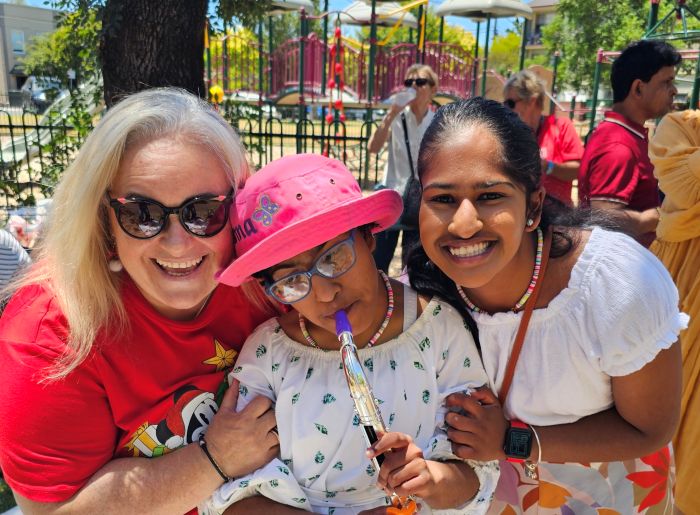With franchisors setting the framework and franchisees engaging communities, the potential for impact and profit is exceptional.
By Sara Pantaleo, Founder of Affari SP
ESG as a Business Imperative
Small businesses are the backbone of the Australian economy, making up 97% of all enterprises. Yet, too often, conversations about sustainability and Environmental, Social, and Governance (ESG) initiatives are assumed to be the domain of large corporations with deep pockets and a global reach. That assumption no longer holds.
Today’s customers are asking more complicated questions. They want to know how their favourite café manages waste, whether their local builder uses sustainable materials, and what their accountant is doing to support the community. In other words, customers are choosing values as much as they are selecting products and services.
This shift presents both a challenge and a tremendous opportunity. For small businesses, ESG can deliver a competitive edge, drive profitability, and strengthen resilience in uncertain times. But the time to act is now.
Why ESG is More Than a Buzzword
The concept of ESG is simple: evaluate your business based on three pillars.
- Environmental: How do you manage energy, emissions, waste, and resources?
- Social: How do you treat employees, customers, and your community?
- Governance: How do you ensure transparency, accountability, and integrity?
When businesses genuinely embrace ESG, they build trust. When they don’t, they risk being called out for greenwashing (the practice of exaggerating or misrepresenting sustainability claims). In an era where consumers are well-informed and quick to share opinions online, reputational damage can be swift.
The good news? ESG is not just about risk. It is about opportunity. Nielsen research shows that nearly 40% of global consumers are prepared to pay more for sustainable products. This willingness creates a pathway for small businesses to increase margins, differentiate themselves, and build long-term customer loyalty.
From Linear to Circular: A Necessary Shift
Our current economy operates on a “take–make–dispose” model. Raw materials are extracted, products are manufactured, and then discarded; often within months. Shockingly, only one per cent of materials used in manufacturing are still “in use” six months after sale.
The circular economy provides a powerful alternative. It is built on three core principles:
- Design out waste and pollution. Products and services are created with longevity and reusability in mind.
- Keep materials in use. Repair, remanufacture, and recycle to extend value.
- Regenerate natural systems. Return nutrients to the soil and reduce reliance on non-renewable resources.
For small businesses, adopting circular practices doesn’t have to be complex. It can start with simple steps such as reducing packaging, partnering with other companies to repurpose waste, or introducing repair services alongside sales.
A Roadmap for Small Businesses and Franchises
Implementing ESG can feel overwhelming. The key is to start small, focus on what is within reach, and build momentum. Here’s a roadmap to guide your thinking:
- Put Community First (Social Impact)
- Engage locally. Partner with schools, charities, or not-for-profits in your area.
- Invest in people. Prioritise staff wellbeing, diversity, and fair conditions.
- Be transparent. Share your community efforts openly; customers value honesty.
- Protect the Environment (Practical Steps)
- Measure usage. Track your energy, water, and paper consumption through utility bills and set reduction targets.
- Cut waste. Introduce simple recycling and composting systems. Look for suppliers who use recycled or renewable materials.
- Explore partnerships where your waste can become another business’s raw material or input.
- Strengthen Governance (Trust and Accountability)
- Define purpose. Clearly state how your business contributes to solving social and environmental challenges.
- Formalise policies. Even small enterprises benefit from written codes of conduct and clear accountability.
- Avoid greenwashing. Don’t overpromise; communicate the progress you are
Franchising: Local Reach, National Impact
Franchise systems are uniquely placed to amplify ESG impact. A franchisor sets the standards and systems, while franchisees embody those values in their local communities. This dual structure means:
- Consistency at scale. When a franchisor embeds ESG into manuals, training, and supply chains, the impact cascades across dozens or hundreds of outlets.
- Authenticity at the local level. Franchisees are small business owners in their own right, deeply embedded in their communities. They sponsor local events, employ local staff, and build trusted relationships with customers.
When ESG is embedded into a franchise system, the results can be exceptional. A national framework ensures standards are met, while franchisees tailor initiatives to local needs. For example, a food franchise might mandate compostable packaging nationally, while each local outlet partners with community gardens, schools, or food banks. Together, these efforts multiply, delivering a visible impact across both neighbourhoods and the nation.
For franchisors, ESG is also a recruitment advantage. Prospective franchisees increasingly want to invest in systems that are future-ready, values-driven, and resilient. Building ESG into the business model makes the franchise more attractive, sustainable, and profitable.
Quick Wins That Make a Difference
Getting started doesn’t have to be expensive. Many small businesses and franchises have achieved impact by:
- Running free energy audits (often provided by utility companies).
- Switching to double-sided printing and reducing paper waste.
- Setting up take-back schemes or repair options to extend product life.
- Surveying employees and customers for sustainability ideas.
Small changes signal to stakeholders that you are serious. They also build the foundation for more ambitious initiatives down the track.
The Business Case for Acting Now
Why the urgency? Because ESG is no longer a “nice-to-have”. It is a business imperative shaped by three forces:
- Customer demand. Consumers are rapidly shifting their preferences towards businesses that demonstrate a positive impact.
- Talent retention. Employees and franchisees increasingly want to work with organisations that have purpose.
- Regulatory momentum. Governments are moving towards greater sustainability reporting and compliance. Small businesses that prepare now will be well-positioned for the future. Larger companies are now required to report their emissions and carbon footprint. If you are a smaller business supplying to larger companies, you will need to do it now to provide the measurement to close the supply chain loop.
The ESG Advantage
For small businesses and franchise systems alike, ESG is not about mimicking the practices of large corporations. It is about finding authentic ways to embed environmental responsibility, social value, and governance integrity into everyday operations.
Done well, ESG unlocks a unique advantage: businesses that are trusted by their customers, supported by their communities, and resilient in the face of change. For franchise systems, the opportunity is even greater: act nationally, engage locally, and the combined impact will be exceptional.
The opportunity is here. The roadmap is clear. And the time to act is now.

Sara Pantaleo – Leading with Purpose, Impact, and Heart
Sara Pantaleo’s journey is a powerful testament to the impact of visionary leadership, innovation, and purpose. Starting her career at NAB IT, she then went on to boldly transform La Porchetta, a family business, from a 12-store operation into Australia’s largest franchised à la carte restaurant group.
With a deep passion for people and growth, Sara’s leadership goes beyond performance metrics. At La Porchetta, she built a diverse and high-performing team, fostering a collaborative and values-driven culture. Her commitment to sustainability and social responsibility led her to co-found both the Moira Kelly Creating Hope Foundation and Affari SP, a consulting firm that empowers small businesses through ESG principles and circular economy thinking.
Sara’s influence extends well beyond her executive career. She has served on national boards including the Franchise Council of Australia and Family Business Association, advocating for the franchising sector and multigenerational businesses. Her leadership continues through roles in organisations focused on financial literacy, healthcare, and community development, each reinforcing her commitment to inclusion, well-being, and social impact.
Named National Franchise Woman of the Year in 2010, Sara is a proud advocate for culturally and linguistically diverse (CALD) women in leadership. She actively mentors the next generation of business owners and champions diversity, equity, and inclusion at every level.
Sara’s motto, “People First,” captures her belief that true success is measured by the positive difference we make. She leads with impact and inspires others to do the same.

